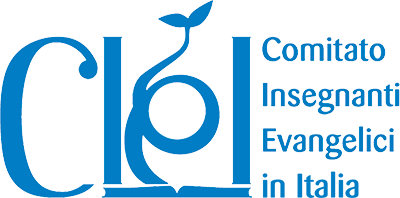1) Because there is one God – creator, omniscient and sovereign – and there is a creation which is made, sustained and reconciled by Him, the calling and the commitment to discover and to know all the aspects of reality are legitimate, the all knowledge and the various disciplines have their own unitary foundation and mutual harmony (Gen 1,1 – 2,3).
2) Man and woman, in their social and institutional contexts (family, church, state etc), are called to educate as part of their cultural mandate (Gen 1,27–28, Mat 28,18–20) and mainly as a means of honouring God, who sent them (Psa. 8, 3–4; 19, 1–7).
3) All truth belongs to God, so both the whole of reality and every detail of it can be represented by an integrated and homogeneous school curriculum. True knowledge doesn’t consist of isolated notions, and true education stimulates the ability to understand the connections among the various subjects and their unifying principle.
4) A school can then be defined Christian, not merely if in its activities Bible study or prayer are present, but if a biblical Christian view is underlying its whole curriculum (Act. 17, 28; Col. 1, 17).
5) Acquisition of knowledge must not be separated from the students’ moral and spiritual formation. To ignore this connection is to fail the whole goal of education and to nullify the student’s efforts (Pro.1,7; 3,3; Mat.22,37; 1 Cor.10,31).
6) All knowledge is set on a background of reference that includes pre-logical beliefs, so (also) in education, being neutral is impossible. Education is essentially a religious commitment. Education, i.e., implies certain choices about the basic questions of life and how to answer them. Not confronting these choices, means to renounce educating (Mat.12,30).
7) Education is carried out in the context of a broken relationship between man and God and it is strongly influenced by the consequences of sin. It is not therefore able to produce in man what only the grace of God can do. Education, besides equipping the student to enter society and the world of work, can nevertheless stimulate the student to acknowledge the reality of God, and his own condition before Him, calling on the work of the Holy Spirit (Joh.16,8–13).
8) Educating children is the responsibility of parents, in the first place. This responsibility must not be transferred, and must be safeguarded from every interference that might come from institutions that are outside the family. Only when delegated to do so and conscious of their auxiliary role, can education be carried out by public or private scholastic institutions. The rights and duties of parents towards their children remain primary in comparison with those of schools and the State (Deu. 6,4–6; Eph. 6,1–4).
9) Since the State does not bear prime responsibility for education, it is called to renounce any claim to sovereignty and control in this field in general, and in religious education in particular. A tangible sign of such limits, could be the elimination of IRC (Teaching of Catholic Religion) in public schools (Joh.19,10–11; Rom. 13,1–7).
10) A Christian view of education keeps into account both the fact that the student belongs to the fallen human race, and his/her dignity as a person – being created in the image of God. It also encourages and promotes the student’s natural skills, and rewards his/her efforts, but through an appropriate use of discipline it identifies and rebukes expressions of sin (Pro. 22,15).
